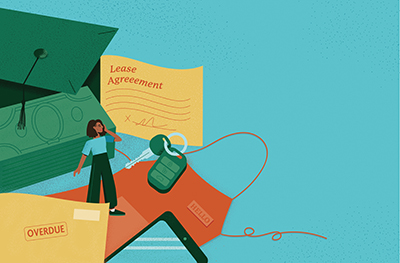By Sue Coyle, MSW
Every year, more than 20,000 young adults age out of the foster care system. They are between the ages of 18 and 21, some having chosen to voluntarily remain in care after 18. Their transition from the child welfare system to adulthood is often difficult as they tackle education, employment, housing, relationships and, simply, next steps.
Easing that transition often falls to social workers and social work organizations. It is a task these professionals do not and should not take lightly. After all, says Judith Schagrin, LCSW-C, a public policy analyst in Baltimore, “These are our children.”
Mark E. Courtney, PhD, Samuel Deutsch Professor Emeritus at the University of Chicago, Crown Family School of Social Work, Policy and Practice and Co-Director of the Transition-Age Youth Research and Evaluation Hub at the University of California Berkeley, agrees.
“Once we assume legal custody and we care for them for some period of time—and for a lot of these young people, most of them have been there for a while, years—we say we’re going to do a good job raising you, we have an obligation to follow through on that.”
Mark E. Courtney, PhD, Samuel Deutsch Professor Emeritus at the University of Chicago, Crown Family School of Social Work, Policy and Practice and Co-Director of the Transition-Age Youth Research and Evaluation Hub at the University of California Berkeley, agrees. “Once we assume legal custody and we care for them for some period of time—and for a lot of these young people, most of them have been there for a while, years—we say we’re going to do a good job raising you, we have an obligation to follow through on that.”
As important as this transition and the young adults going through it are, there is still much room for improvement. Young adults facing a cutoff of services at 18 or 21, if not a bit older, depending on the service, can lack the tools and the network needed to progress forward independently.




